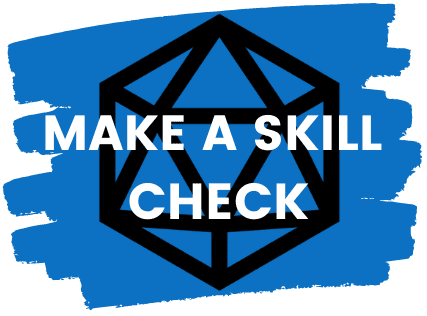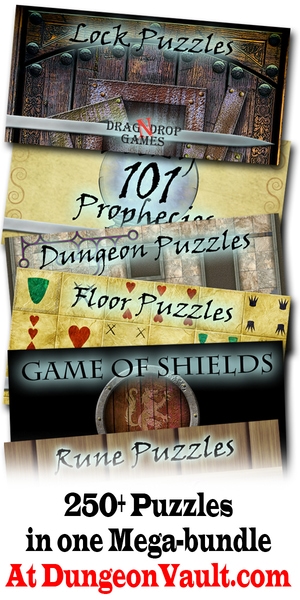Curse of Strahd (CoS) is one of the most popular D&D 5E official campaign modules. Even I, who enjoy coming up with my own stuff and have done so for most of my gamemastering life, have picked it up to run as a “filler” game when busy players can’t show up to my behemoth 7-player homebrew campaign. It can be refreshing to have a less prep-intensive thing on the side, and it can be even less prep-intensive if you don’t customize them. So, let’s look at tips and tricks for running modules. First, what are modules?
Premade adventures—modules—are a great resource for everyone from inexperienced DMs to veterans who could occasionally use lighter fare or enjoy remixing source material. My tips: skim the module, ask players their plans, make a cheat sheet, modify as you please, and religiously keep track of changes.
However, running a module is not challenge-free. All the DMing best practices still apply with some unique considerations.
Luckily for you, we have this short article to help you out!
Table of Contents
Study The Module—But Not Too Much
Some people would vehemently tell you to read the whole thing cover to cover before even starting, but I’m not one of them.
You may read a short one-shot in its entirety before running it, like our Giant Spotted Owlbear that fits into four pages, including big art pieces and statblocks.
But a whole book with over 200 pages in letter format and small-ish print like the ones Wizards of The Coast puts out? Nope.
It makes sense to skim it to get familiar with its sections and the “if-then” things, but there’s a point where most of the info leaves your brain because you’re not using it.
You could get around it by constantly studying the book, but that sounds a lot like exam prep. For most of us, playing games is something we do on the side for fun.
You should, however, closely read whatever is pertinent to the next session or a scheme you’re cooking up.
In a sandbox module like CoS, that means becoming an expert in the area the PCs will be in and getting a close look at the statblocks you may have to use.
Avoid relying solely on your ability to predict the directions the story is going to make prep easier and faster.
Straight-up ask your players what their next-session and long-term plans are. This will allow you to read only what you absolutely must and make the changes necessary to take the campaign to the next level.
While you do all the above stuff, you mark the book in the relevant places—my copy of CoS is full of post-its with their corners poking out—and take notes in such a fashion that you don’t need to pick up and flip through the large book when something escapes your mind.
Meaning you should…
Assemble a Cheat Sheet
A lot of your session prep isn’t generating content but organizing the module’s contents for ease of access.
This enables you to run sessions smoothly as if the content came out of your head. After all, even running your own homebrew will require you to check your notes. Especially if you don’t play every week (trust me).
You can have a living document for the big picture things about the larger world (Barovia, the city of Waterdeep, etc.), overarching plot, character relationships, and plot triggers.
A plot trigger is an event that—once the PCs see it through—advances the plot or changes the state of the world.
On a session basis, what you need in the cheat sheet is:
- Locations: Where the action happens. Pays off to have some snippets of evocative descriptions in the chamber (improv aids, more on that in my article here). Quick tip: include 2-3 senses when describing things.
- Characters: NPCs that PCs will likely interact with. Who are they, what do they have that the PCs want, what do they want, what do they fear? Statblocks might also come in handy. (More on making solid social encounters in my article here.)
- Encounters: Specific situations that are guaranteed or likely to happen. This includes conversations, fights, extended skill checks, etc. 4 encounters per session is a decent rule of thumb.
- Information: Useful knowledge the PCs will likely come across. Under what circumstances can it be gained, where it would be most relevant, who knows it already and how they might react, etc.
- Rewards: Physical loot, level-up milestones/XP, supernatural boons, and what the preconditions to each are. Scrivener and Milanote are good for keeping these bits and bobs straight.
Make It Yours, Improvise, Keep Track of Changes
Rare is the readymade adventure that will fit your tastes and gamemastering inclinations like a glove. And since you’re in charge, you are at liberty to adapt it to you, not the other way around.
It will be more fun for you like this, making the experience at your table more unique.
Not into combat without narrative stakes, resource-draining filler fights, or randomness in your session flow? Do away with random encounters! I myself like to handpick my traversal encounters, add some context to them and deploy them with intent.
Feel like a noteworthy enemy’s statblock is boring? Add stuff. (More on this in my article here)
One of my GM trademarks—according to my players—is giving class skills and levels to my bad guys. Got a neat, setting-appropriate homebrew monster you haven’t had the chance to use yet? Chuck it in!
Dislike a plot beat or McGuffin location? Switch it up.
Hell, you can compound your modules by buying individual dungeons (Like our Weeping Walls or Harald the Conqueror) and placing them in a larger module’s world. My DM did this in Tomb of Annihilation, inserting a dungeon here or there.
You can do it in prep, and you can do it in-session, too. Improvise and change things on the fly to your heart’s content.
But remember—keep track of all your alterations. The campaign cheat sheet is where this record log belongs.
While thinking about changes, make sure to check what other GMs online have done to the module over the course of their games.
You’re bound to find something you like that you can drag and drop into your game or at least something that inspires you to come up with your own twists. A lot of the main official modules have entire subreddits dedicated to them.
Summary
That’s a wrap. Let’s go over the key takeaways so you can be on your way.
- Skim the module to become acquainted with its structure and main beats in advance, but only dive into the text for a close read of the stuff you’ve got planned for your next session.
- Ask the players about their plans, long and short-term, to guide prep.
- Assemble cheat sheets for the module itself and for each session. They should contain locations, plot beats, NPCs, key encounters, useful knowledge, and loot.
- Make it yours! Change stuff to fit your tastes as a DM and your group’s playstyle.
- Religiously track your changes and PC actions that altered the state of the world.







0 Comments